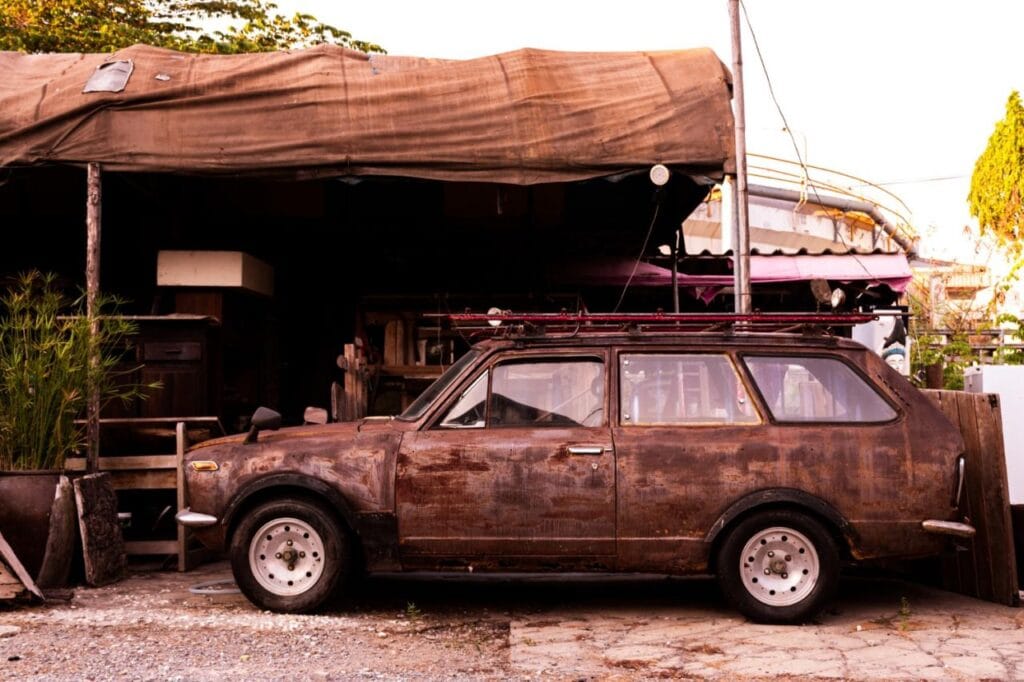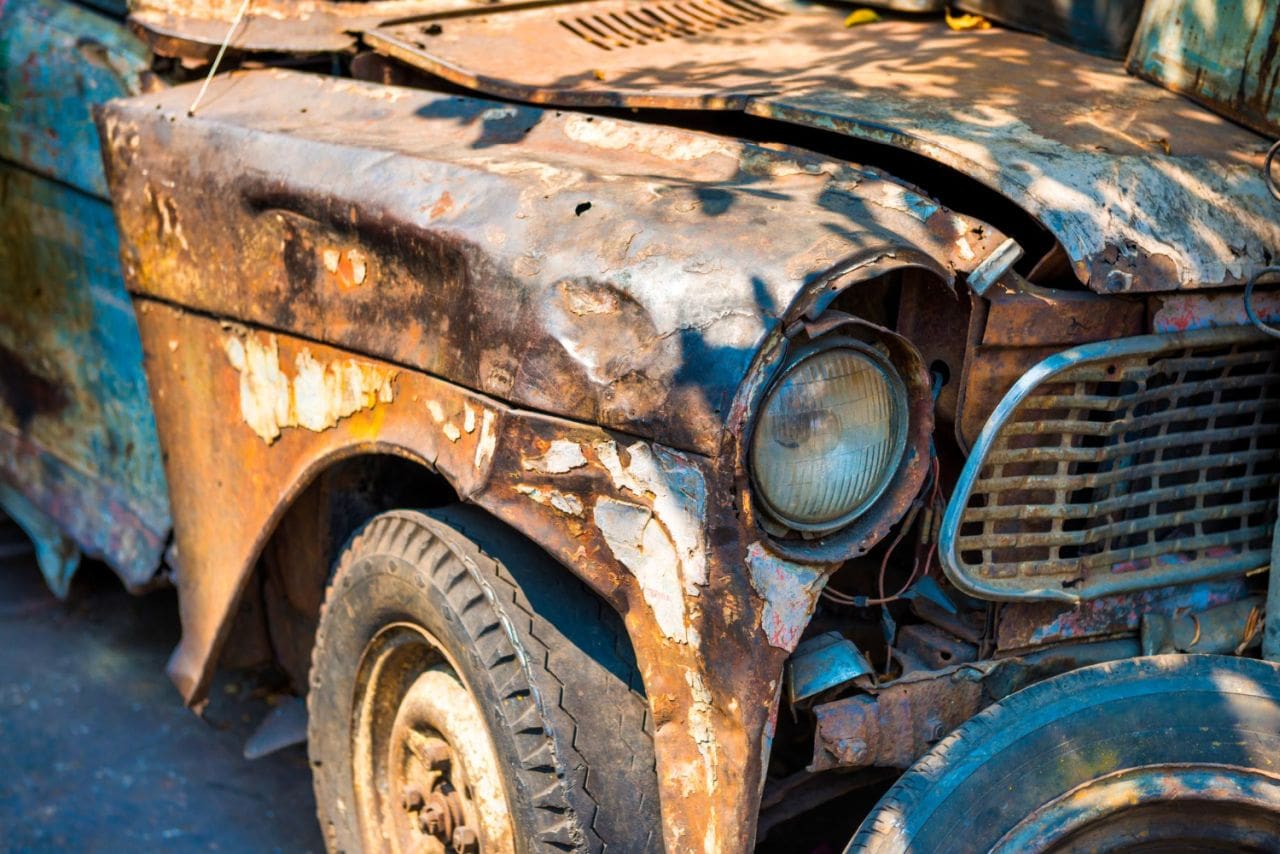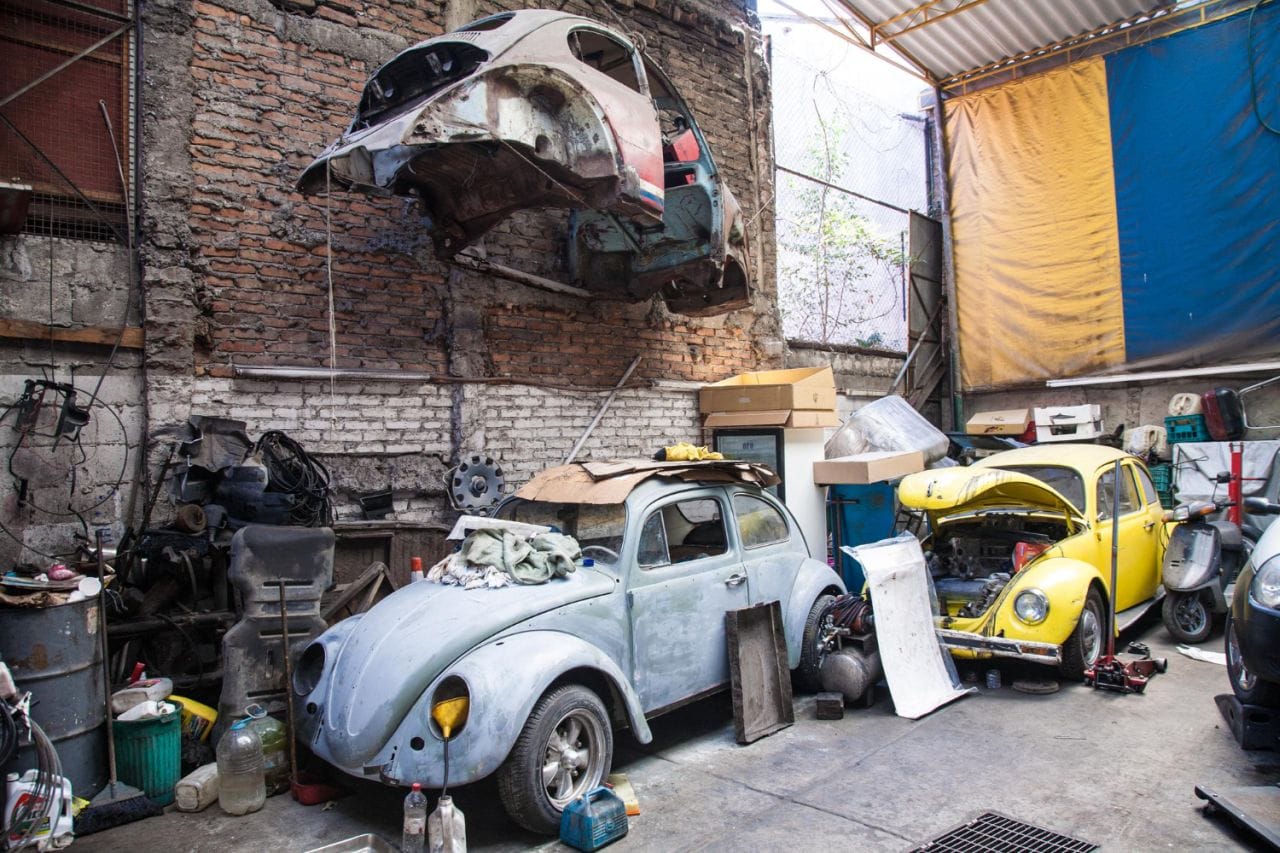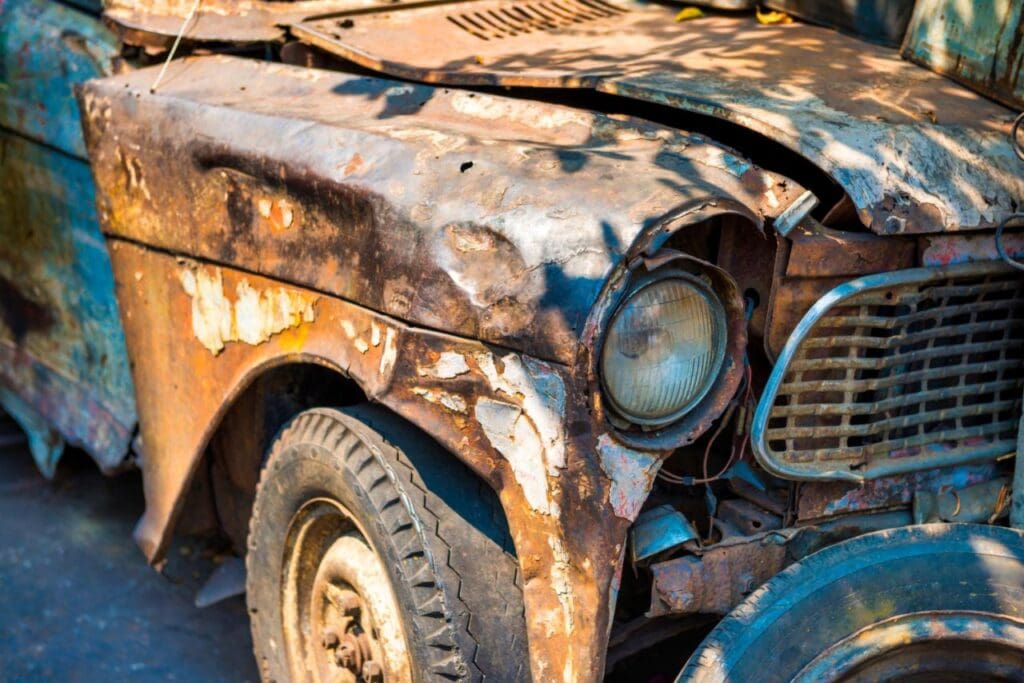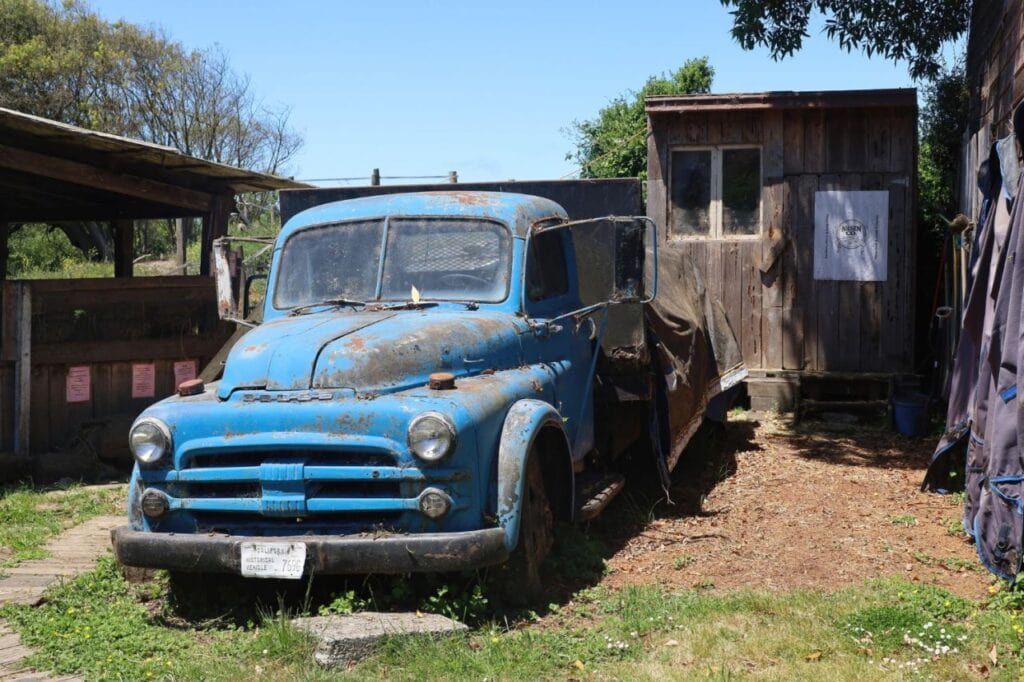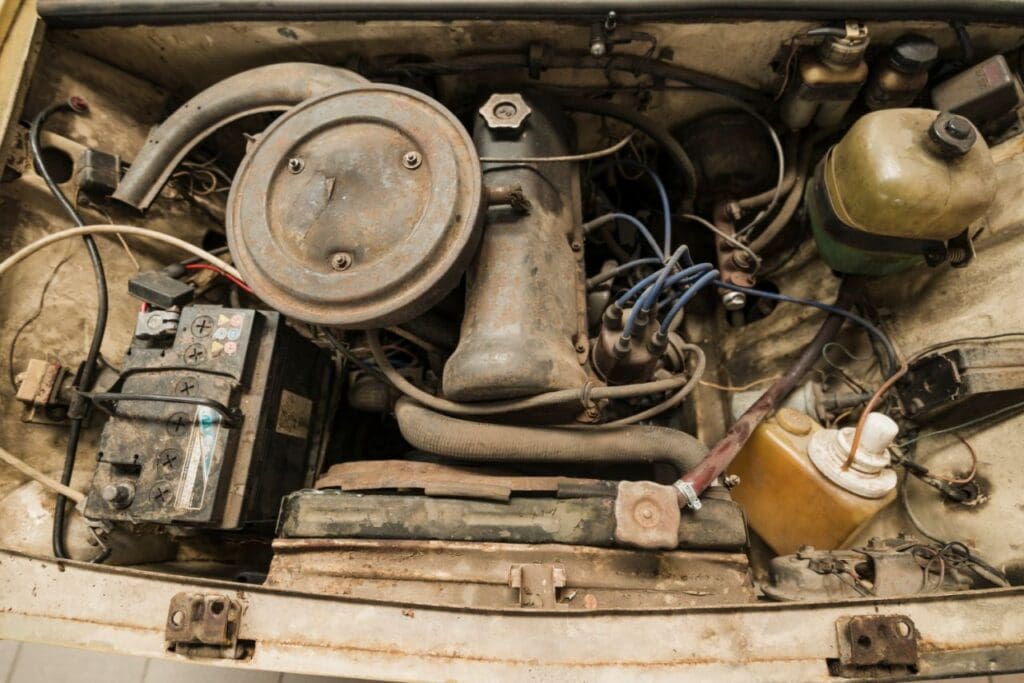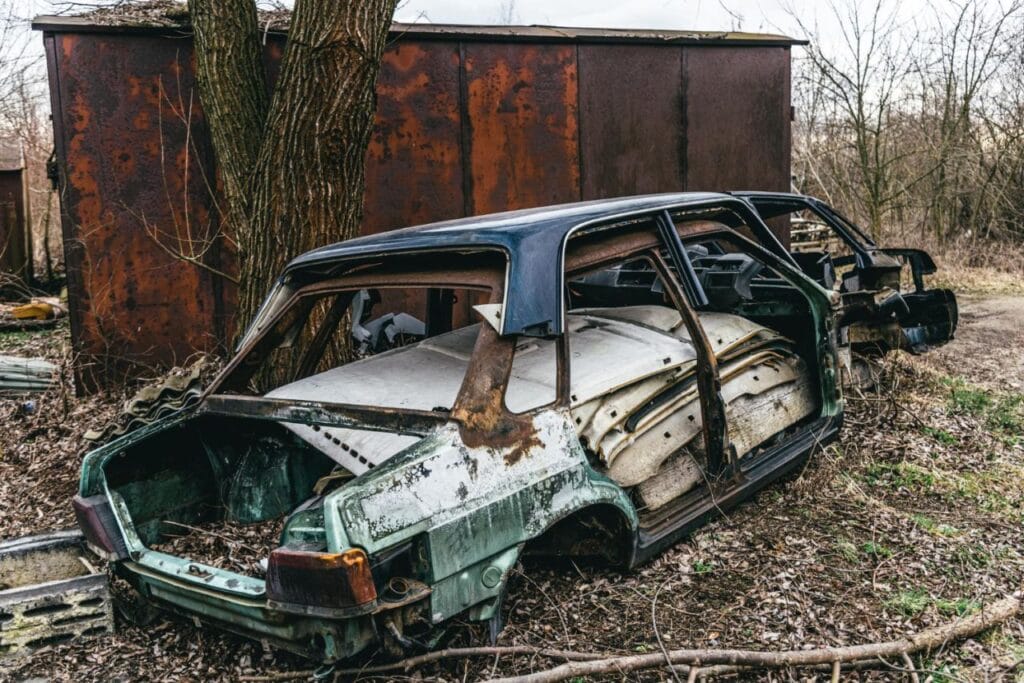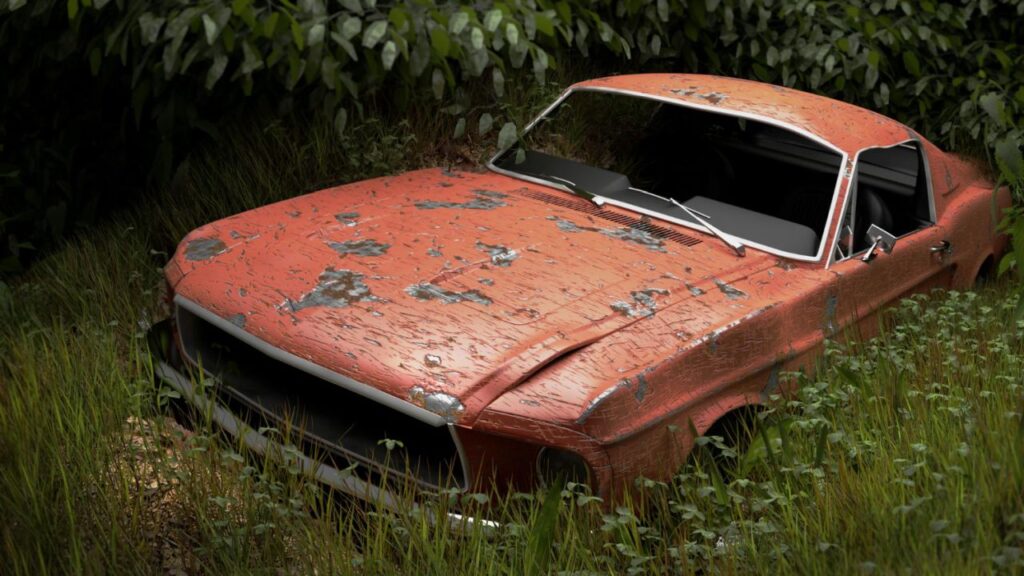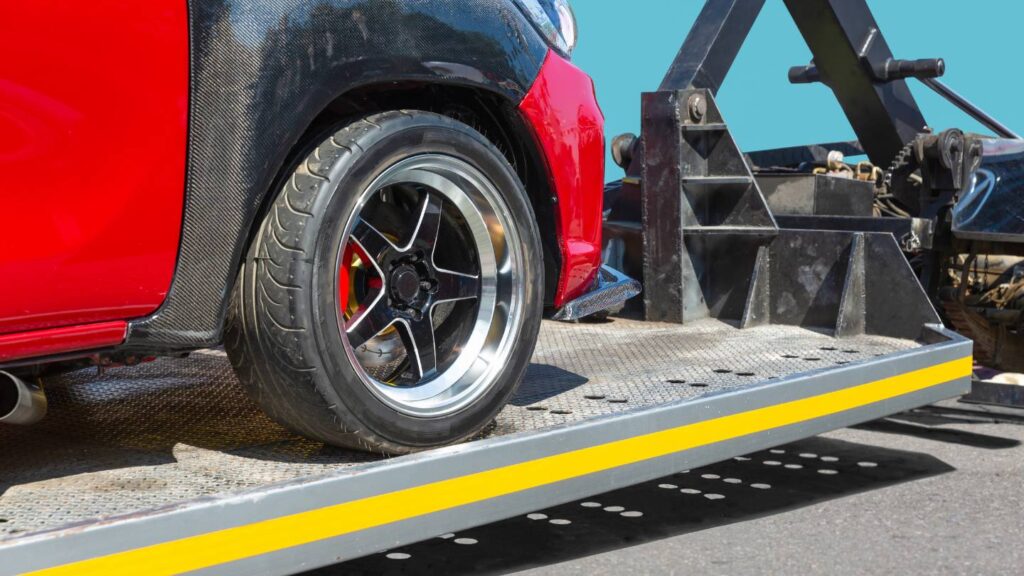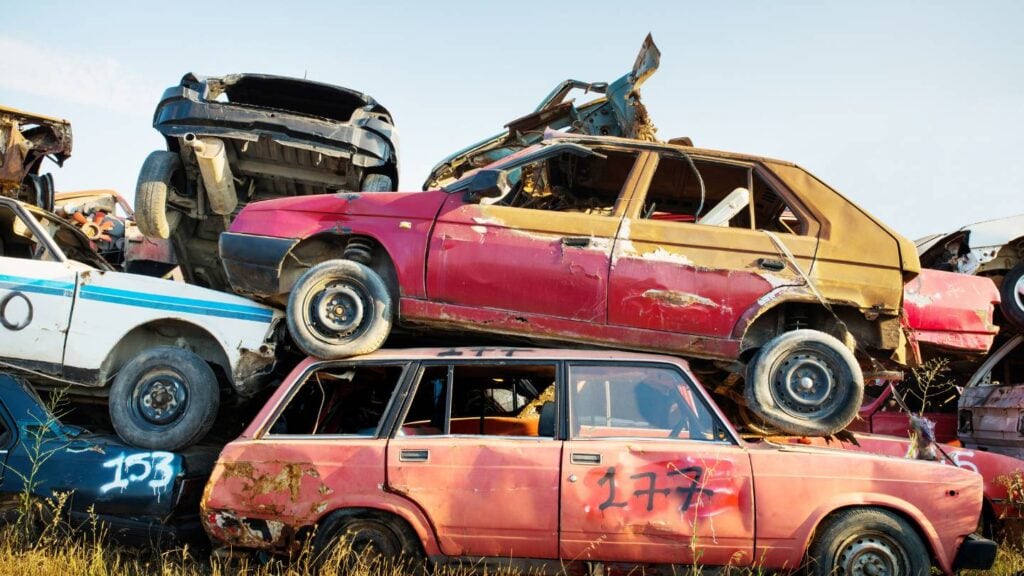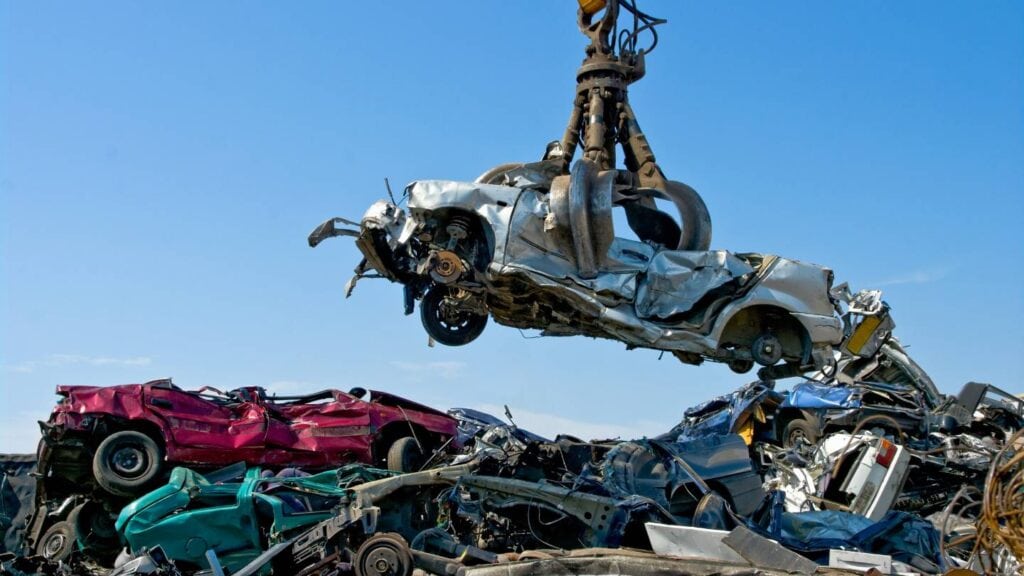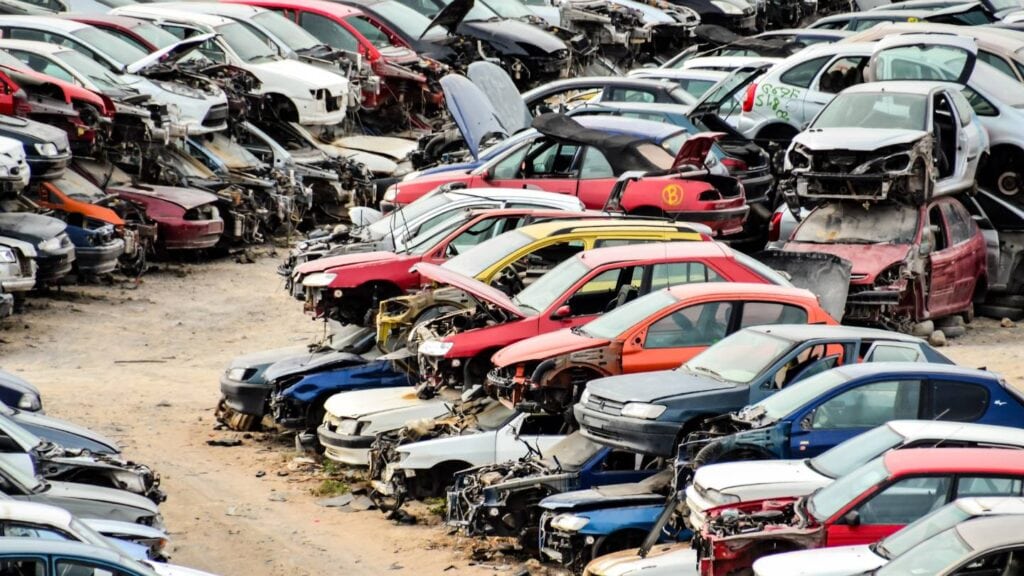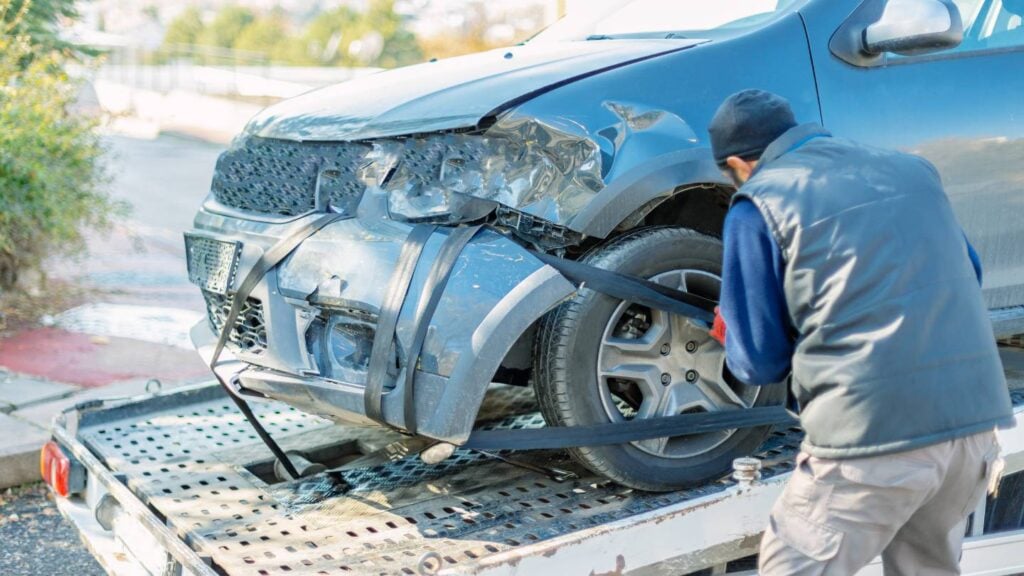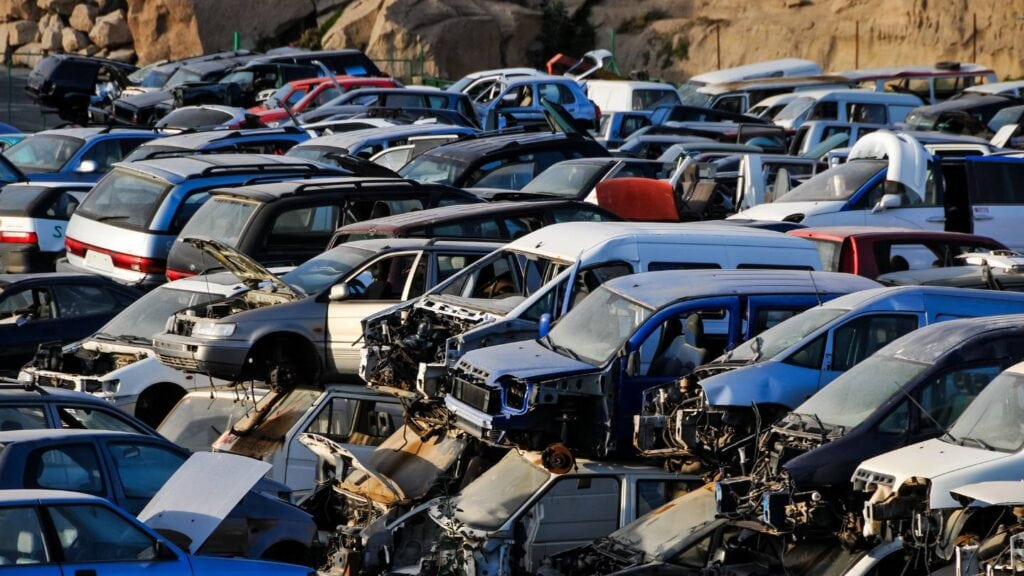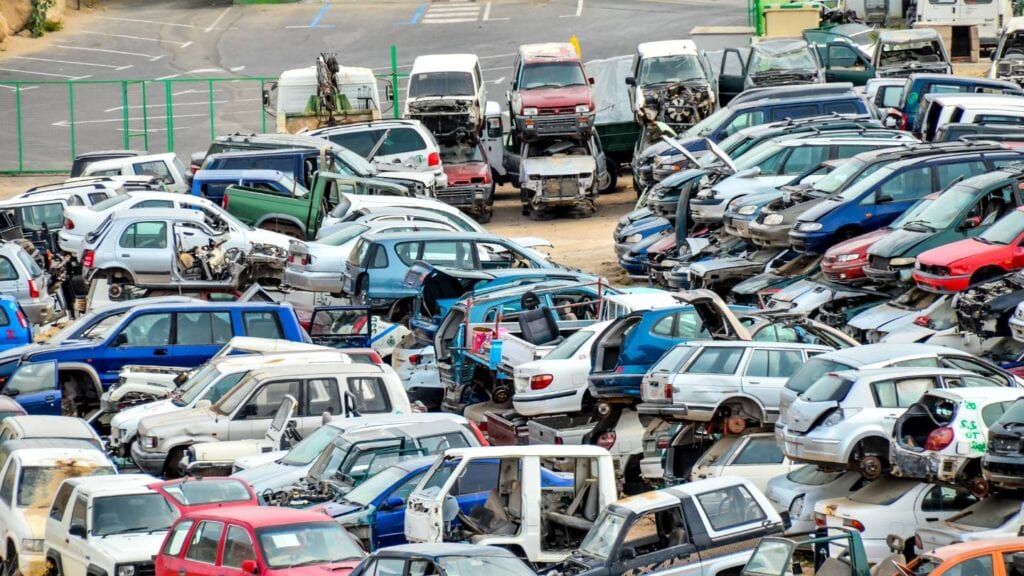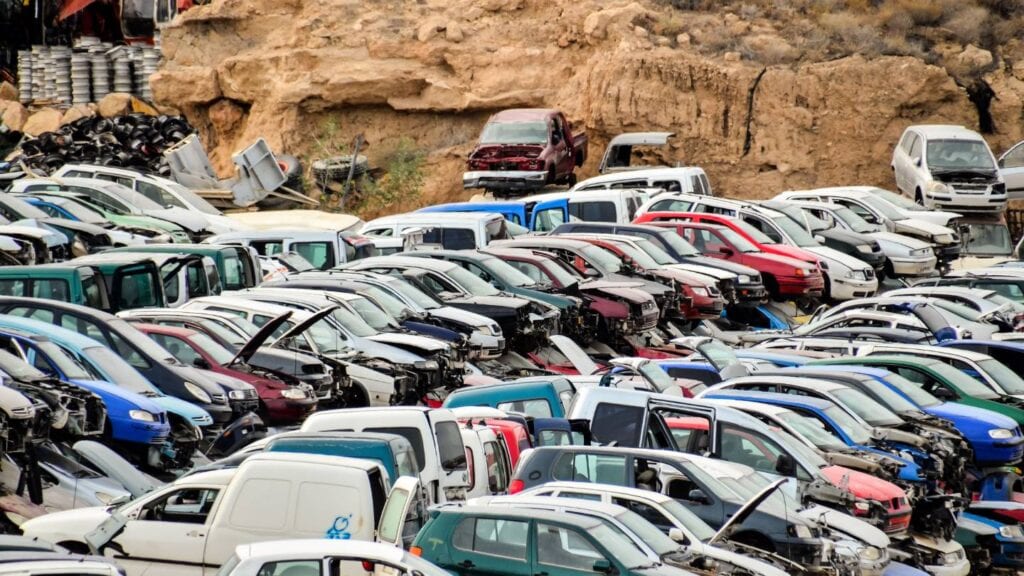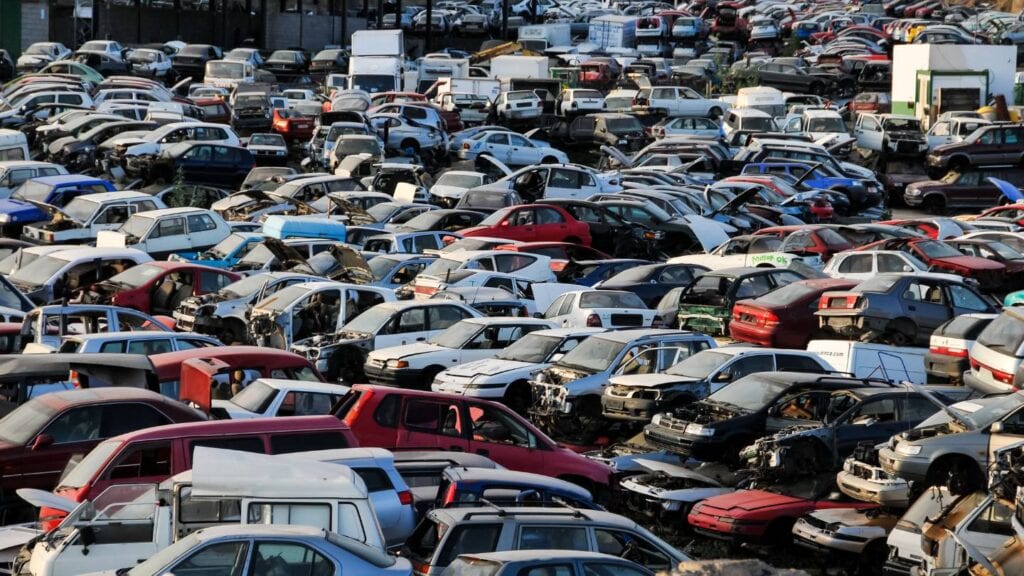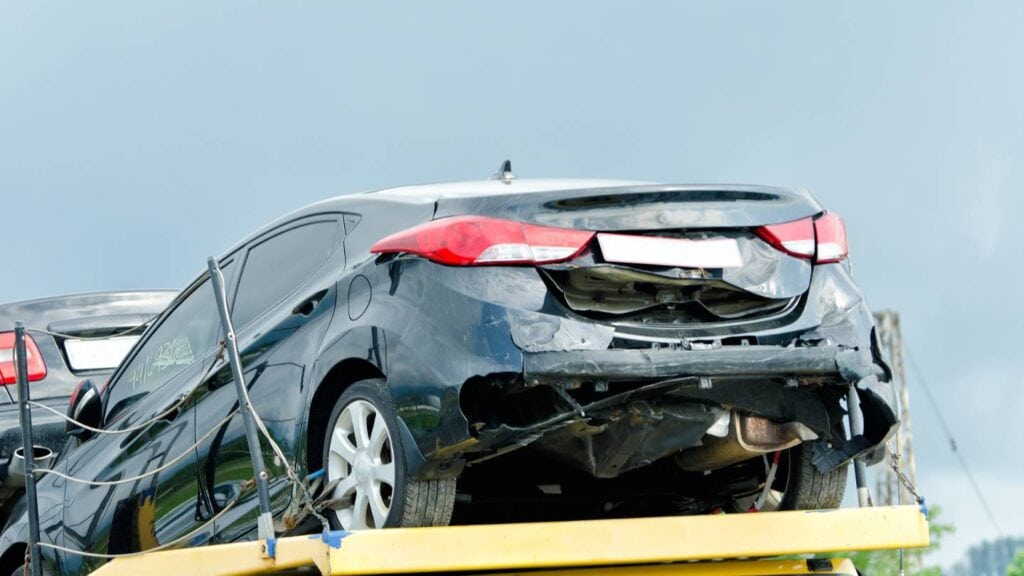Is your car keeping you up at night? Have you been debating whether or not to part with your treasured car? The question of whether or not their vehicle is a total wreck presents a difficult problem to a lot of motorists.
In addition, because of the emotional attachment some people feel to their automobiles, selling or trading them in can be difficult. But, there does come the point when getting rid of a scrap car is the sensible option.
It's never been easier to dispose of your unwanted car and get cash for cars - get in touch with Old Cars Removed today!
Stay calm if you are unsure as to whether or not your vehicle has reached the junk stage. This article will discuss the telltale symptoms that your car is a complete scrap. We will address everything from mechanical failures to physical harm. So let's get to the bottom and see if your car is dead.
What Exactly Is A Junk Car?
Let's define what we mean by "junk car" before we go into the telltale indicators of a vehicle that's reached the end of its useful life. Vehicles that are too old, damaged, or in poor condition to be driven legally are considered junk or salvage cars.
Vehicles considered "junk" are usually several decades old, in poor working conditions, or have been in an accident. They are often sold for scrap or parts because their owners decide repairing or maintaining them is not worthwhile.
Signs Of A Junk Car
Here are some clear signs that your vehicle is beyond repair and best left at the junkyard:
Excessive Damages
Extensive damage is the primary indicator that a car is no longer road-worthy and should be written off as trash. For example, let's say you were in a serious car crash or collision that destroyed the majority of your vehicle, rendering it immediately useless.
Similarly, if your car was destroyed by floodwaters or hail, you may not be able to get it fixed. As a result, your car may be declared a total loss by your mechanic or insurance company.
Major Mechanical Problems
Natural disasters and extreme weather aren't the only things that can render your car useless; major mechanical issues are also something to keep an eye out for.
For instance, if these issues seriously affect vital components like the transmission or the engine, you're probably dealing with a total loss.
This is only sometimes the case, though. Not all hope is lost when an engine or transmission fails; there are still possibilities beyond scrapping the car.
Experts in the automotive industry generally advise taking a comprehensive look at the cost of repairs. When the cost of repairs exceeds 75% of the car's value, it's probably not worth fixing, and you should consider selling or donating the vehicle instead.
When estimating your car's value or the repair cost, you should think about every possibility. For example, it's important to factor in the cost of maintenance, like oil changes and tyre rotations, when estimating how much it will cost to fix your car.
Failure To Meet Emission Standards
Your car may be considered junk if it fails to pass the emissions test in your state or country. Vehicles that do not pass emission tests are often rendered illegal, and their owners are forced to scrap them.
Age Or High Mileage
Your car is junk if it has nothing but problems. For instance, a high-mileage, old car may become scrap simply because it has reached the end of its useful life.
If you drive a car past 250,000 miles, for instance, you can expect serious engine or transmission issues. The vehicle is already nearing the end of its life cycle even if you didn't deal with these issues, and you'll soon be faced with the question of what to do with your trash automobile.
Safety Concerns
Suppose your vehicle has many problems compromising its safety, such as broken brakes, inoperative airbags, or other essential safety systems. In that case, it is possible that it will be declared unfit to operate. When this happens, consider your vehicle a junk car and try to sell it for parts or scrap metal if you can.
Rust Or Other Body Damage
Rust can slowly eat away at your car's exterior in a variety of situations and particularly harsh weather.
The repair will be easier with professional assistance if the rust has spread to the frame or other deep components.
Altering your vehicle can also be the result of other visible body damage or structural issues. For example, if your mechanic tells you that your car's frame is broken or needs replacing, you may consider selling the vehicle or treating it as junk.
The Resale Value Is Low
Furthermore, if the resale value of your car has dropped significantly in the recent past, it may be a sign that it is a total junker. As a car nears the end of its useful life, it may no longer be financially viable to make repairs or perform routine maintenance.
As a result, once the car becomes inexpensive enough that any future repairs are no longer worthwhile, you should treat it as junk even if there are no obvious flaws.
Technology That Is Out Of Date
Cars are becoming increasingly high-tech and smart as technology develops rapidly. It could be an indication that your automobile is a clunker if it doesn't have air conditioning, power windows, or a working audio system. Vehicles with outdated technology are less safe and worth less.
Determining The Value Of Your Vehicle
Knowing the car's resale value is important when determining whether or not the vehicle is a total loss. Unfortunately, because they've had their cars for so long, many people have yet to learn how much they're worth. However, knowing this is essential for moving and dealing with a junk car.
There are a number of tools out there that can help you determine the current market value of your car. Let's examine a few of these approaches:
Professional Mechanic
You should consult with your mechanic if you need more confidence in dealing with the math involved in deducting repair costs from the KBB value. If you're wondering whether or not your car is worth fixing up, a quick conversation with your mechanic could be the first step in getting a clearer picture.
The experience of your mechanic should help him determine how much interest there is in purchasing your vehicle. Now that you know how much it would cost to fix your car, you can decide if it's worth keeping.
Online Cash Cars Buyer tool
Finally, instead of paying a mechanic for assistance, you can use an online tool to find out how much your car is worth. If you're interested in selling your car, you can use the online valuation tool we provide on our homepage to get a ballpark figure, and if you're satisfied with that number, you can proceed with a sale to Cash Cars Buyer.
Factors Affecting The Value Of Your Vehicle
There are a number of factors that could affect the future value of your vehicle, and you should keep these in mind when estimating its current market value. Some considerations include the following:
Age Of The Car
Vehicles have become integral to modern life, prompting buyers and sellers to consider factors beyond the initial transaction. For example, if you know how old your car is and how many miles it has been driven, you can use this information to get a ballpark estimate of its value as scrap metal.
Machines, age, and mileage all play a role in determining a used car's worth in today's technologically sophisticated market.
These determining factors require an appreciation of two distinct scales: annualised actual miles driven and holder lifespan.
After the first decade or two, it's common for a new model's value to decrease slightly. This timeframe, however, varies considerably by brand and model. Therefore, owners may need accurate data regarding their total lifetime usage to value their vehicles.
The Car's Make And Model
Value increases for well-known makes and models because more people are likely to be interested in purchasing the vehicle. However, due to their narrow appeal, luxury and specialty vehicles may need help finding buyers.
Finding the value of your used car requires looking at similar makes and models currently for sale. This will help you determine a fair price for your vehicle when the time comes to sell or begin negotiating a trade-in.
Availability Of Parts
When it's time to fix your car, having quick access to convenient and dependable parts can make all the difference. When it comes to servicing and fixing your vehicle, the options you have at your disposal are crucial. Not only can you find higher-quality resources more quickly, but you also have easier access to those resources.
Remember that if replacement components for your vehicle are hard to come by, its resale value may suffer. In addition, if consumers learn that a vehicle is costly to maintain and repair, they may think twice before purchasing it. Therefore, you should consider the accessibility of replacement parts when determining the value of your vehicle.
Condition Of The Vehicle
The car's condition is a major factor in determining its value. Therefore, potential buyers will look past the obvious signs of wear and tear to evaluate the home's cosmetic condition and any mechanical problems that may need fixing.
Regularly serviced vehicles will command a higher price when sold secondhand. As a result, buyers can rest easy knowing that the car will continue to perform as expected now and in the future.
If Your Car Is Junked, What Should You Do?
If you've asked yourself, "Is my car junk?" and concluded that it is, you'll need to figure out what to do with the vehicle.
Donate Your Car
Car donations are another way to help others while also getting a tax break. Donating your vehicle to charity allows the organisation to generate funds by selling it for parts or scrapping it for metal. Donation forms require your name, address, and the vehicle's make and model.
Sell Your Vehicle To A Scrapyard
One of the fastest, most efficient, and simplest ways to get rid of a junk vehicle is to sell it to a junkyard. If you don't feel like fixing up the car or restoring it, or if you don't have time to try to sell it privately, this is a great alternative. But first, get a few quotes from nearby scrap yards by calling them. Typically, they'll make you an offer based on the car's weight and the metal's going rate.
Keep And Restore Your Vehicle
Your car may be in good enough shape to be restored if it is no longer operational. If you own a classic or sentimental car, restoring it may be a good investment because you can resell it for a profit afterwards. Restoring a car can be time-consuming and costly, but the result is often satisfying.
Sell Your Vehicle For Parts
It's possible to get more money by selling your car for components if it's a more valuable or uncommon model. For example, if you have a car in good shape but won't start, this could be a good option because you can likely get good money for the transmission, engine, and other parts. You can sell the parts separately or take the entire vehicle to a scrap yard specialising in buying and selling used automobiles.
Conclusion
To be considered "junk," a car must be either too old, too damaged, or in too bad of shape to be driven on public roads. Because their owners no longer see any value in investing in repairs or upkeep, they are frequently sold for scrap or parts.
Extensive rust, serious mechanical issues, and injuries are the three hallmarks of a junk vehicle. The primary sign that a vehicle is no longer safe to drive and should be considered junk is extensive damage.
Keep a watch out for major mechanical issues as well, especially if they have a significant impact on the vehicle's transmission or engine.
When determining a vehicle's worth, industry professionals recommend factoring in the full price of necessary repairs. Several factors can lead to a vehicle's scrapping: not meeting emissions requirements, being too old or having too many miles on the odometer, safety problems, and rust or other body damage.
It may not be worthwhile to repair a vehicle if doing so would cost more than 75% of the vehicle's current market value. The methods for estimating a vehicle's worth are the meat and potatoes of this document.
Examining the vehicle for obvious signs of damage or structural problems, considering the vehicle's market value, and noting any outdated equipment are all good places to start.
In today's technologically advanced market, a used car's value is determined in part by its mechanical condition, its age, and its miles. Due to their limited market, luxury and speciality automobiles may require assistance in finding buyers.
A used car's worth is established by comparing it to other vehicles on the market that are of the same make and model.
The worth of a car depends heavily on its condition and the ease with which you can get replacement parts. Used car prices tend to rise with vehicles that have been well-maintained.
What should be done if the vehicle is indeed junk? Just give it away or sell it.
Donating a car to charity is a great way to help people and save money on taxes at the same time.
The quickest and most convenient way to get rid of a scrap car is to sell it to a recycling centre. If your car is no longer running, keeping it and restoring it is a solid financial move. If you have a rare or expensive car, you may get more money by selling it for components than by keeping it.
Content Summary
- Vehicles that are too old, damaged, or in poor condition to be driven legally are considered junk or salvage cars.
- Cars that are considered "junk" are usually several decades old, in poor working conditions, or have been in an accident.
- Excessive damage is the primary indicator that a car is no longer road-worthy and should be written off as trash.
- Major mechanical issues can also render your car useless and should be assessed thoroughly.
- If the cost of repairs exceeds 75% of the car's value, it's probably not worth fixing.
- Failure to pass the emissions test in your state or country can be a sign that your car is junk.
- A high-mileage, old car may become scrap simply because it has reached the end of its useful life.
- If your vehicle has many problems compromising its safety, such as broken brakes or inoperative airbags, it may be declared unfit to operate.
- Rust can slowly eat away at your car's exterior, and if it has spread to the frame or other deep components, you should consider selling the vehicle or treating it as junk.
- If the resale value of your car has dropped significantly in the recent past, it may be a sign that it is a total junker.
- Cars with outdated technology are less safe and worth less.
- Knowing the car's resale value is important when determining whether or not the vehicle is a total loss.
- It is essential to determine the current market value of your car for dealing with a junk car.
- A professional mechanic can help you determine the value of your vehicle.
- There are also online tools that you can use to get an estimate of your car's value, such as Kelley Blue Book and Edmunds.
- You can also ask local car dealerships or car-buying companies for an estimate.
- Be honest about your car's condition when getting an estimate.
- Once you have determined your car's value, you should compare it to the cost of repairs to decide whether or not to sell or repair it.
- If the car is worth more than the cost of repairs, it is usually best to repair it.
- If the car is worth less than the cost of repairs, you should consider selling it for parts or scrap metal.
- If you decide to sell your junk car, there are several options available, such as selling it to a junkyard, a salvage yard, or a car-buying company.
- When selling to a junkyard, you will typically receive a low offer, but it is a fast and convenient option.
- When selling to a salvage yard, you may receive a higher offer, but you will have to deliver the car to the yard yourself.
- Car-buying companies will usually offer the highest price, but they may have additional fees and require paperwork.
- When selling your car, make sure to have all the necessary documents, including the title and registration.
- Before selling your car, remove all personal belongings and important documents from the car.
- If your car is not in working condition, it may be more difficult to sell, but there are still options available.
- Some charities will accept non-working cars as donations.
- Some car-buying companies specialize in buying non-working cars for parts or scrap metal.
- When selling a non-working car, be honest about its condition and whether or not it can be driven.
Frequently Asked Questions about Used Cars
To get the best value for your junk car, you can:
- Shop around and obtain quotes from multiple junkyards or scrap yards.
- Provide accurate and detailed information about your car's condition, including any usable parts.
- Remove any personal belongings or valuable items from the car before selling it.
- Ensure you have all the necessary paperwork, such as the vehicle title and registration, to streamline the selling process.
- Consider selling usable parts separately to earn additional income.
Yes, junk cars can pose environmental concerns. They may contain hazardous materials, such as oil, gasoline, and coolant, which can contaminate soil and water if not properly handled. Therefore, it's important to ensure that the junkyard or scrap yard you sell your car to follows proper environmental regulations and safely disposes of any hazardous materials.
The average age of a car when it is scrapped is usually around 15 years old. However, it can depend on factors such as region, make and model of the car, and how well the car has been maintained throughout its life.
If your car is considered a junk car, it's typically not advisable to drive it. Junk cars are usually in poor condition and may be unsafe operating on public roads. It's important to consider the safety risks and potential legal implications of driving a junk car before attempting to do so.
If you decide to keep your junk car, consider storage options. Junk cars can take up space and may not be suitable for long-term storage, especially if they are not properly maintained. You may also need to check local regulations and requirements for keeping a junk car on your property, such as obtaining proper permits or meeting storage conditions.

